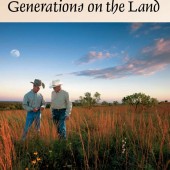





Richard Pritzlaff gives us a good idea what to expect, and not expect, from Nick Patoski’s book. This is not a grand theoretical or comprehensive work on land use or conservation, but, as Pritzlaff explains, stories from real families about their experiences of restoring land, especially grazing land. Pritzlaff gives us enough of a taste to sense the morsels that are here and to let us know how our plate will be filled by reading the whole book.
Continue Reading
 Journal of Sustainability Education is licensed under a Creative Commons Attribution License.
Journal of Sustainability Education is licensed under a Creative Commons Attribution License. 